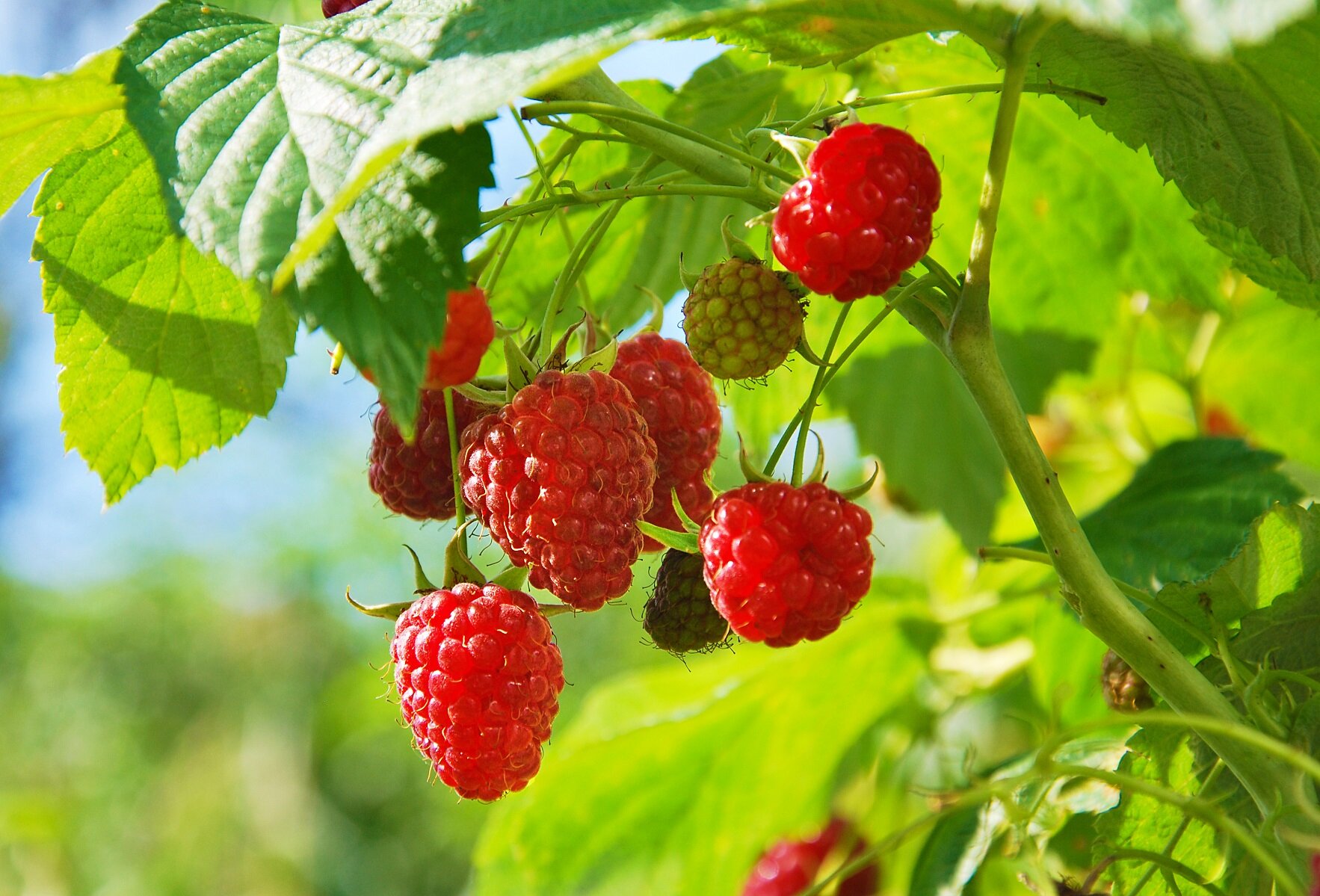Welcome to my Food Forest where I grow an number of fruits in the Bee Better Teaching Garden. Information in this fruit series is based on knowledge I’ve gained growing in hardiness zone 7b, in Raleigh, North Carolina. Helen Yoest
‘Southland’ Raspberries
Kind:
Latin Name: Rubus idaeus
Common Name: Raspberries
Type: Deciduous shrub
Height: 3 to 9 feet
Spread: 3 to 9 feet
Pollination: Raspberry blooms are self-pollinating; however, bees are responsible for 90 to 95 percent of pollination. Honeybees or solitary bees are solely responsible for pollinating raspberry bushes.
Fruit Health Benefits: Raspberries are low in calories but high in fiber, vitamins, minerals and antioxidants. They may protect against diabetes, cancer, obesity, arthritis and other conditions and may even provide anti-aging effects.
Wildlife Benefits: Bees, birds, and butterflies
Origin of species: North America, Europe, northern Asia, Japan
Cultivars: For our region, ‘Southland’.
Culture Information:
Sun: Full sun to part shade
Water: Best grown in organically rich, slightly acidic, moist but well-drained soils in full sun to part shade. Intolerant of wet soils which can cause root rot. When grown for harvest of its raspberry fruits, raised beds should be considered in areas with heavy clay soils.
Zone: 4 to 8
Years to bear fruit: 2nd year, at least that was what it was for us.
Harvest Time: Early summer
Care:
Plant: Best grown in organically rich, slightly acidic, moist but well-drained soils in full sun to part shade. Intolerant of wet soils which can cause root rot. When grown for harvest, raised beds should be considered in areas with heavy clay soils. We have ours growing in a raised. bed.
Fertilizer/pH: 6 to 6.5
Mulch: Add an organic mulch around the roots.
Groom/Prune: Summer-bearing – Remove all weak canes to the ground in early spring. Leave 10-12 of the healthiest canes, about ¼ inches in diameter, with 6-inch spacing. Tip prune any that may have suffered cold damage. Following summer harvest, prune off the old fruiting canes to the ground.
Pest/disease Control: Anthracnose, botrytis, root rot, and other fungal diseases can cause serious problems that may necessitate chemical treatments. Cane borers and crown borers are potentially serious insect pests. We have been very fortunate to have had no problems.
Propagation: Coming soon!
Comments:
I’ve never met another area gardener that can grow raspberries. We are just on the edge of growing them, they like cooler climates. But for whatever reason, for the last 10 years, I get a bumper crop. I often share with others. I believe it’s because I grow them in a raised bed!

